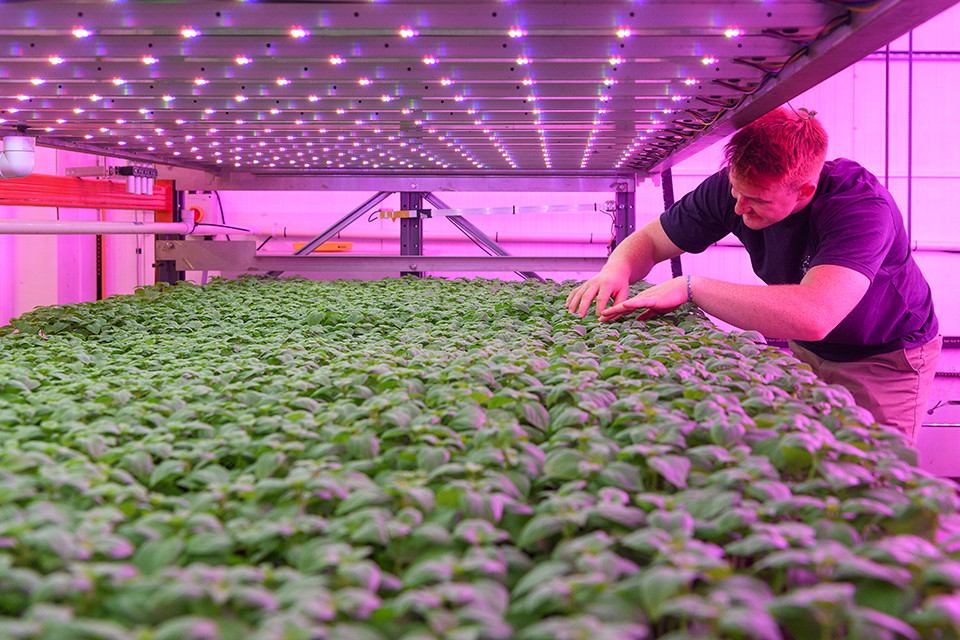
By Professor Derek Stewart, Director, Advanced Plant Growth Centre, The James Hutton Institute
The recognition and momentum for action on increased food production in Scotland is growing, taking more control to bolster our ability to produce, provide and protect our food supplies. Scotland has ample opportunities to meet this challenge, and we are already making remarkable strides in the right direction; we just need to better harness our resources.
We are a world entirely dependent on food and equally interdependent on each other’s ability to grow and produce it so that we have enough all year round. We must use this interdependency and our ability to innovate and solve problems to take us on the next step in the evolution of the food journey.
Evolution is inevitable with the passing of time, but equally innovation has been a constant in the agriculture and food industry, and today is no different. The production of fresh food has gone through a rapid evolution in the last 30 years, with innovation and the hunger for real solutions at its core. The passion, dedication and ingenuity in the agrifood sector, from all its corners has been remarkable, aided by and embracing advances in technology, science, data and communication.
A central part of this is the innovation and development of contained agriculture concepts like controlled environment agriculture (CEA), which allow for local, high-quality production and remove seasonality. Operations with indoor environments unavoidably have requirements of energy use, in some cases significant use. There is no denying that the evolution of agriculture comes with implications for sustainability, but it does not mean that we can’t find the right solutions if we approach it in the right way.
“For future agrifood success the production and distribution of renewable energy is paramount, the reduction of water usage essential and the need to grow and supply in a more localised area inevitable. This is not a wish list; this is the reality of science and continued human nutrition”
We are proving that this is possible, but it absolutely requires a whole systems approach and collaboration from government, industry, agriculture and science. We can and are developing the approach to growing that can feed and sustain our populations, bolstered by developing international science that is translated into local solutions which can also enhance nutritive value and ensure the sensory experience is still enjoyable.
But we must not lose sight of the need to work together to enhance our supply chains and to develop action-based research to actively help reduce the pressures on our planet. The recently-released UK Government Food Strategy is a step in the right direction, recognising the need for more cohesive thinking and a realistic ability to diversify food production successfully and affordably.
The future of farming has begun its evolution already. We have the solutions within our grasp and an extraordinary ability to innovate. We cannot do this in siloes however, it should, and has to be, a collective effort to get us where we all need to be.


